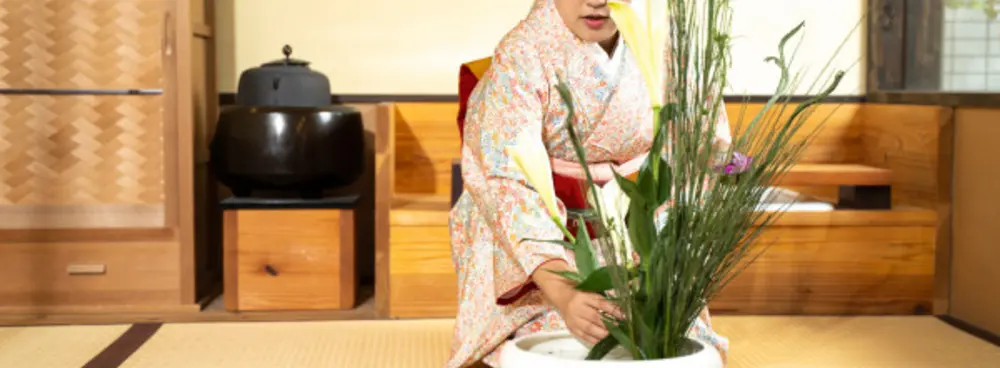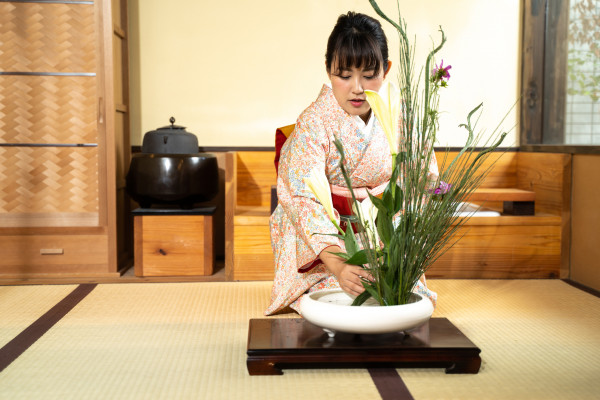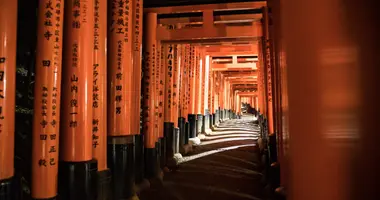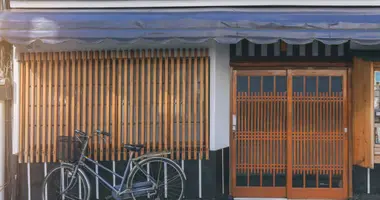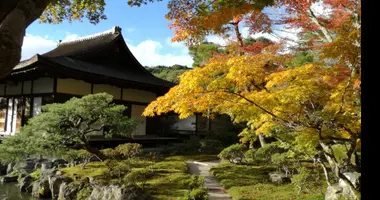Ikebana, the art of flower arrangement
- Kyoto
- English
- 1 hour
In a traditional, authentic setting, learn about the beauty and symbolism of ikebana, the Japanese "way of flowers".
Ikebana, or Kado, the Japanese way of flowers
Born in the Heian period, flower arrangement originated with the monks who were the first to work with flower arrangements to honour Buddha. Subsequently adopted by aristocrats and then becoming more widespread, Ikebana, also known as "Kado" or "the way of flowers", is today an art practised by many Japanese men and especially women. A symbol of elegance and sophistication, it is one of the three arts of Japanese refinement, along with the art of tea and the art of perfume.
More than a bouquet, a work of art
In addition to the choice of flowers, their symbolism and the relationship to the seasons, Ikebana is similar to sculpture in the sense that the spatial arrangement of flowers, leaves, branches, grasses, etc. is of major importance. The directions, heights and volumes are highly codified and respond to rules developed over several centuries according to the schools, and with Ikebana, it is important to make both the empty and the filled spaces speak.
Ikebana is a traditional art form that is still very much alive today, and is constantly evolving as the great masters and young contemporary artists continue to develop it and boldly push back its limits.
Ikebana class in a traditional house in Kyoto
We invite you to try your hand at the ancient yet lively art of Ikebana, to learn the basics, and to create your own arrangement. The secrets of Ikebana will be revealed to you in a traditional Japanese atmosphere for about 1.5 hours.
